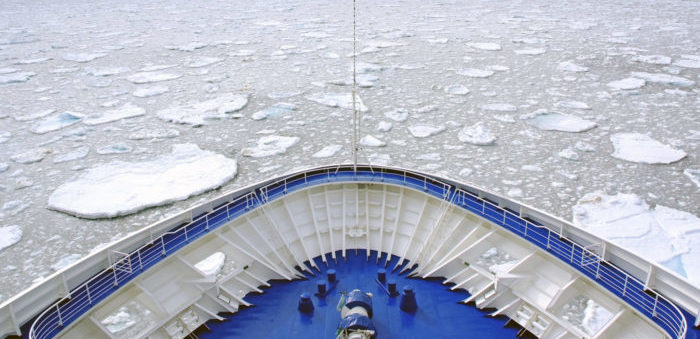HFO produces higher levels of air and climate pollutants than any other marine fuel, and its use must be banned in the Arctic, urged WWF.
According to the organization, huge loopholes in a proposed international shipping agreement means vulnerable marine ecosystems and the livelihoods of Arctic peoples will continue to be threatened by spills from heavy fuel oil (HFO).
New research from the International Council on Clean Transportation (ICCT) shows that under the current text, only 16% of HFO used by the shipping industry in the region will actually be banned by the regulation. IMO member states are currently finalizing the text for an Arctic HFO ban that will be voted on in next month’s meeting of the Marine Environment Protection Committee (MEPC).
Considering the risks a heavy fuel oil spill poses to polar environments, the IMO has already banned its use and carriage in the Antarctic. HFO is a thick and polluting shipping fuel that is nearly impossible to clean up if spilled in cold and icy environments. Air emissions from HFO further accelerate the climate crisis when the high volumes of soot, particulate matter and black carbon fall on the surrounding ice and snow, absorbing sunlight and increasing melting.
Andrew Dumbrille, sustainable shipping specialist, WWF-Canada, commented:
Arctic sea ice is melting at an unprecedented rate and that means more and more vessels will be travelling through the region. That increased traffic brings potential threats to marine life and ecosystems already under stress from a rapidly changing climate. Arctic States need to ensure the final agreement fulfils the original intent of the HFO ban and completely eliminate its use by 2024 to protect the food security and livelihoods of local and Indigenous communities from pollution and spills
Mark Lutes, senior advisor for global climate policy for WWF Climate & Energy, added that if the text is left as is, this will be a ban in name only. Effectively banning HFO in the Arctic is an important step in the IMO fulfilling its commitment to a comprehensive greenhouse gas emissions reduction strategy.
Taking these into consideration, WWF urged all Arctic states to lead further negotiations at the IMO to strengthen the current text of the HFO ban on use and carriage for use.
States should be calling for the removal of any so-called waivers and exemptions which would delay a full ban, due to come into effect in 2024































































